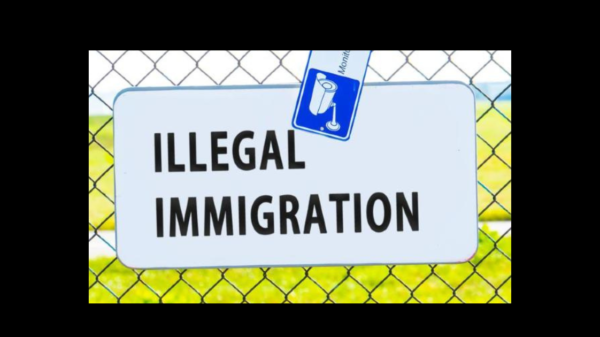This week, U.S. Sen. Marco Rubio, R-Fla., sent a letter urging President Joe Biden to remove unnecessary bureaucratic hurdles ahead of the 2023 Atlantic Hurricane Season.
In the letter, Rubio also recommended that the Biden administration conduct a comprehensive review of all existing federal regulations that can be relaxed to guarantee more effective and orderly relief efforts in the event of landfall.
“The state of Florida faces tremendous challenges during every Atlantic Hurricane Season. Florida residents need security knowing burdensome federal regulations will not prevent the state of Florida from providing quick protection when facing damage during the hurricane season,” Rubio’s office noted.
The letter is below.
Dear Mr. President:
As tomorrow marks the official start to the 2023 Atlantic Hurricane Season, I write to request that the administration conduct a thorough review of all existing federal regulations that can be relaxed to yield more effective and well-organized hurricane relief and response efforts. The 2022 Atlantic Hurricane Season saw 14 named storms, 8 hurricanes, and two major hurricanes, including Hurricane Ian, which devastated Florida last September. We must focus on addressing continuing bureaucratic inefficiencies to ensure a more robust federal response for the next disaster, particularly as the State of Florida continues to recover from last year’s tropical cyclones. Streamlined efforts across the federal government are of critical importance to the success and timeliness of disaster response.
For too many Americans, the disaster recovery process is needlessly complex and disjointed. I urge you to cut unnecessary and duplicative regulations, which disadvantage communities and individuals recovering from natural disasters. Burdensome rules may impede rebuilding and recovery in the aftermath of natural disasters. Individuals, businesses, local governments, and nonprofit organizations in Florida must be free to focus on safe preparations and post-recovery activities without bearing the burden of arduous federal regulations that may inadvertently amplify obstacles to recovery.
In times of disaster, Americans come together to overcome daunting challenges to rebuild and recover. A thoughtful assessment and revision of bureaucratic mandates that impede disaster recovery efforts is necessary to address victims’ health and safety needs effectively. Some examples include, but are not limited to, the following:
The Department of Health and Human Services (HHS) must improve coordination with the Department of Homeland Security (DHS) and the Department of Defense (DoD) when a major disaster declaration is issued, and use its authorities to the maximum extent possible to efficiently provide aid to persons and populations in need.
The DoD should use existing authorities to rapidly repair damage to installations that are regularly impacted by natural disasters, and create a list of installations that are more prone to being threatened or damaged by natural disasters.
The Department of Veterans Affairs (VA) should move to ensure that veterans living in rural areas, such as the Florida Panhandle and the Florida Keys, have a full suite of medical service options available to them in their own communities as roads and highways are impacted by debris, flooding, traffic, and emergency response activities.
The Federal Aviation Administration (FAA) should explore disaster policies whereby drone regulations can be temporarily and safely lifted during disaster declarations to facilitate emergency relief efforts, such as helping victims obtain medications when the roads to their homes are blocked.
The Department of Housing and Urban Development (HUD) should ensure that there are sufficient protections in place for residents of HUD-assisted properties to prevent them from being forced back into living conditions that may have been made unsafe and unsanitary following a disaster.
The Department of Labor (DOL) should look to provide more flexibility to ensure that business reporting requirements do not paralyze businesses and workers whose most immediate priority should be providing assistance.
The Internal Revenue Service (IRS) should expediently delay filing deadlines when necessary and consider rule reforms that enable disaster victims to make penalty-free early withdrawals from 401(k) and other retirement accounts.
The Federal Emergency Management Agency (FEMA) should be prepared to expedite the placement of portable residences and trailers in areas that have been devastated by storm surge to allow survivors to live on their properties.
The Department of Agriculture (USDA) should revise regulations for the Emergency Watershed Protection Program to allow local project sponsors 30 days to complete work for exigent circumstances and 365 days in nonexigent circumstances.
The Army Corps of Engineers (USACE) should be prepared to implement emergency permitting procedures to expedite emergency work in response to disasters.
I respectfully request that your administration work directly with my office and the State of Florida to ease any other regulatory burdens associated with federal disaster relief and recovery that may require Congressional assistance.
Thank you for your prompt attention and consideration on behalf of Floridians, and all Americans, who may be impacted during this year’s hurricane season.


















